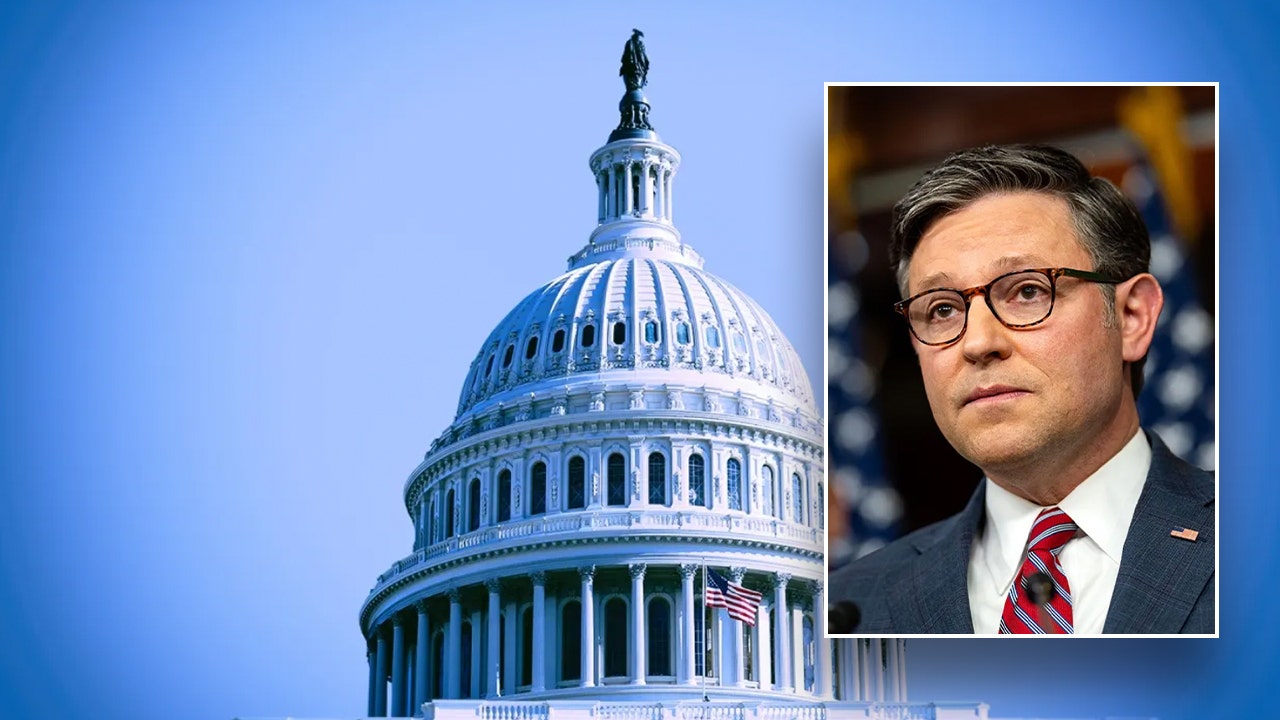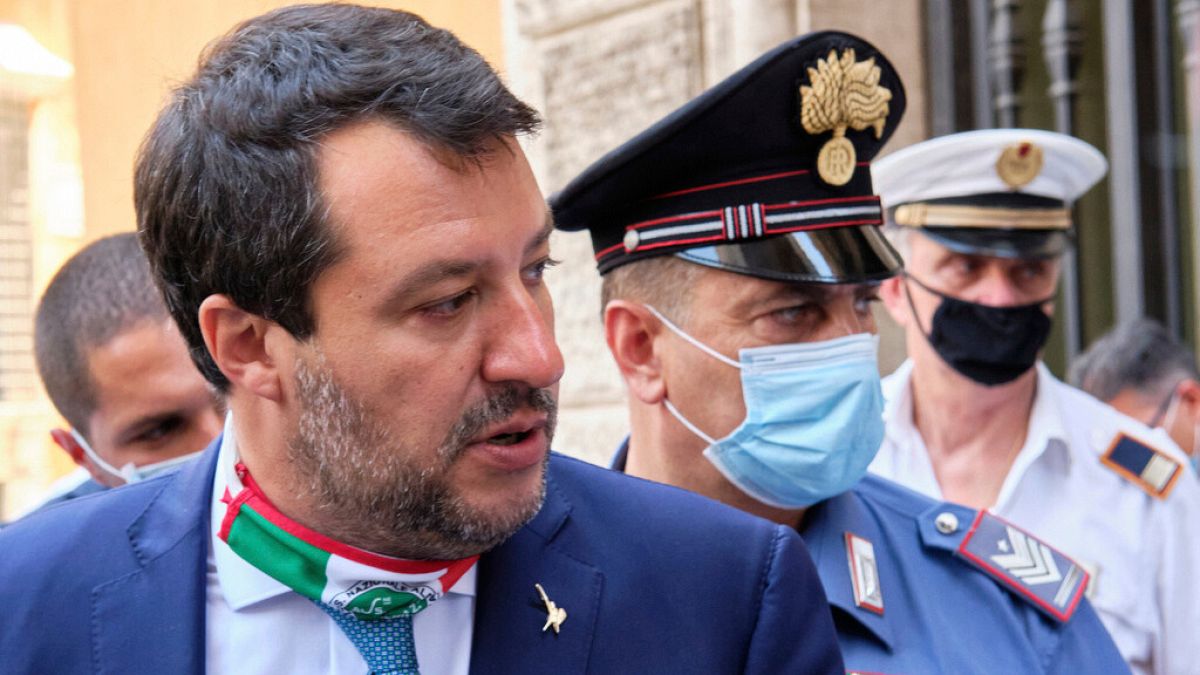World
Is democracy at risk of extinction?

According to a survey by Open society foundations, more than a third of 18-35 year olds favour a military regime or an authoritarian leader. How did it come to this?
Do people still believe in democracy? This was the question asked by a recent Open Society Foundations poll, which for the second consecutive year surveyed more than 36,000 people in 30 countries around the world to hear their opinions and feelings about human rights, democracy, and other important issues facing countries around the world.
The “Open Society Barometer: Is Democracy Effective?” survey, one of the largest global polls ever conducted, was conducted between May and July 2023 and the results, published in the run-up to International Democracy Day, are surprising, to say the least.
The concept of democracy is still widely popular in every region of the world: 86% of respondents say they would prefer to live in a democratic state and 62% believe that democracy is the best possible form of government. In Italy, the results were 91% and 69% respectively.
Only 20% of people said that authoritarian states are more capable of satisfying citizens’ demands and are more efficient in dealing with major issues at home and in the international arena.
What is surprising, however, is that although trust in democracy is still high across the board, the age group that is most sceptical about its effectiveness is the youngest one, those aged 18 to 35.
If we look at the data disaggregated by age group, the percentage of citizens who consider democracy to be the best possible form of government drops to 55% among the youngest, while it is 61.4% among the 35 to 55-year-olds and 69% among those older than 56.
What is more, 42% of those aged 18-35 said that a military regime is a good way to govern a country, while 35% are in favour of a ‘strong’ leader who dispenses with elections and parliament. In Italy, the percentages drop to 24 and 32%, respectively.
But how did we get here – and what does it mean for the survival of democracy?
“It is really worrying that the lowest support is in the youngest group, the 18 to 35-year-olds because today we have the largest generation of young people. Half of the world is under 30,” says Natalie Samarasinghe, Global director for advocacy at Open Society Foundations.
But, she says, context is important. “It is a combination of factors. We are facing a generation that has experienced a series of shocks: economic crises, COVID-19, climate change, and it is more than proven that authoritarian states have not handled these crises well, but neither have democracies. When you grow up in an era of instability and crisis, you have little trust in politicians. So I think this translates to scepticism about the system as a whole.”
In addition to the feeling that politicians have failed to deal with the major crises of recent years, there is also the impression ‘that they are worse off’ than their parents in terms of socio-economic conditions and, finally, the lack of representation: “How many young people feel that they have a say in democracy when the issues they fight for are never at the top of the agenda?”, asks Samarasinghe.
This disaffection for democracy thus stems from a general and continuous mismatch between what citizens demand and what is then actually delivered by the political class. On average, about one-third of the respondents do not trust politicians to work in their interests and address the issues they care about. Primarily poverty, inequality and human rights, climate change and corruption.
The responsibility of other generations
Gianfranco Pasquino, Professor Emeritus of Political Science, agrees with Samarasinghe not only on the socio-economic difficulties that have marked the last generations but also on the responsibility of the political class. “Parties have become inadequate structures. Parties teach democracy, practise it and show how to practise it. A great American political scientist wrote a book in the early 1940s saying that parties are born with democracy and democracy is born with parties. Consequently, democracy dies if parties die and instead thrives if parties recover. But I do not see this effort on the part of politicians,” Pasquino explains.
However, the professor also attributes some of the responsibility for young people’s disaffection with the democratic system to the older generations, who are progressively more pro-democracy. Among the over 56 interviewed, the most authoritarian regimes are not particularly popular: only 20% are open to a military state, and 26% to a strong leader.
A considerable difference with younger people, but one that is easily explained according to Pasquino: “Quite simply, many of them have lived part of their lives under an authoritarian regime and know that they would never want to go back. Instead, they have had positive or at least better experiences with democracy than young people. But it would have been better if they had passed on this information, feelings and emotions to their children. Perhaps they did not do it enough.”
Is democracy at risk of extinction?
So what does this data tell us about the health and future of democracy? Is there really a risk that the democratic system will gradually fade away? Neither expert sees this as even remotely possible.
“Democracies continue to appear, and the established ones have never fallen. It is actually wrong to say that there is a crisis of democracy, there are problems in the functioning within some democracies, for example,Hungary, for example, Poland, but democracy is not in crisis,” says Professor Pasquino.
Samarasinghe goes even deeper: “The trend has always been and will be towards more freedom. And I think this survey also shows that there is this desire. Only that people now see a discrepancy between this desire and their lives. But I don’t think their solution is ‘OK, we will turn to an authoritarian system’. It may be a short-term solution, but not a long-term one. The values that people personally hold dear, including human rights, are so deeply rooted even in countries that currently have more authoritarian governments, that they cannot possibly fade away.”
Rather, the concern is another: what can happen during this period of misalignment. “I think political leaders, national and international, need to keep in mind what the consequences of inaction are. It is not just a matter of saying: ‘OK, we don’t want to give up coal production now because we have this industry in the lobby and we might lose the next election.’ The whole system is at stake here.”

World
Malaysia agrees to resume 'no find, no fee' hunt for flight MH370, 10 years after plane disappeared

Malaysia’s government has agreed in principle to accept a second “no find, no fee” proposal from a U.S. company to renew the hunt for flight MH370, which is believed to have crashed in the southern Indian Ocean more than 10 years ago, Transport Minister Anthony Loke said Friday.
Loke said Cabinet ministers gave the nod at their meeting last week for Texas-based marine robotics firm Ocean Infinity to continue the seabed search operation at a new 15,000-square-kilometer (5,800-square-mile) site in the ocean next year.
MALAYSIA ANNOUNCES RENEWED PUSH TO FIND MH370 DECADE AFTER DISAPPEARANCE: ‘SEARCH MUST GO ON’
“The proposed new search area, identified by Ocean Infinity, is based on the latest information and data analyses conducted by experts and researchers. The company’s proposal is credible,” he said in a statement.
The Boeing 777 plane vanished from radar shortly after taking off on March 8, 2014, carrying 239 people, mostly Chinese nationals, on a flight from Malaysia’s capital, Kuala Lumpur, to Beijing. Satellite data showed the plane deviated from its flight path to head over the southern Indian Ocean, where it is believed to have crashed.
Flight officer Rayan Gharazeddine scans the water in the southern Indian Ocean off Australia from a Royal Australian Air Force AP-3C Orion during a search for the missing Malaysia Airlines Flight MH370, March 22, 2014. (AP Photo/Rob Griffith)
An expensive multinational search failed to turn up any clues, although debris washed ashore on the east African coast and Indian Ocean islands. A private search in 2018 by Ocean Infinity also found nothing.
Under the new deal, Ocean Infinity will get $70 million only if significant wreckage is discovered, Loke said. He said his ministry will finalize negotiations with Ocean Infinity in early 2025. The firm has indicated that January-April is the best period for the search, he said.
CLICK HERE FOR THE FOX NEWS APP
“This decision reflects the government’s commitment to continuing the search operation and providing closure for the families of MH370 passengers,” he added.
Ocean Infinity CEO Oliver Punkett earlier this year reportedly said the the company had improved its technology since 2018. He has said the firm is working with many experts to analyze data and narrow the search area to the most likely site.
World
Last-minute budget bill to prevent US government shutdown prevails in House

A last-minute budget bill has passed in the United States House of Representatives to keep the federal government funded and running through mid-March, averting an impending shutdown.
The continuing resolution now progresses to the Senate with only hours to spare before the shutdown is slated to take effect on Saturday at 12:01am local time (05:01 GMT).
On Friday evening, the temporary budget legislation sailed through the House with an overwhelming 366 votes in support.
Only 34 representatives, all Republican, voted against the bill. One Democrat, Representative Jasmine Crockett of Texas, abstained by voting “present”.
“We are really grateful that tonight, in bipartisan fashion with overwhelming majority of votes, we passed the American Relief Act of 2025,” Mike Johnson, the House speaker, said in a news conference after the vote.
The stopgap bill, however, omitted one key issue that had stalled recent negotiations: the debt ceiling.
Normally, Congress weighs federal spending separately from the debt ceiling, which limits how much the government can borrow.
But this week, President-elect Donald Trump scuttled an earlier bipartisan bill in part because it did not extend or abolish the debt ceiling, which he compared with a “guillotine” dangling over his incoming administration.
The debt ceiling has become a divisive issue among Republicans, some of whom feared extending or eliminating it would pave the way for unfettered government spending.
Trump, for his part, threatened to set up primary challenges for any Republican who opposed his plan. He signalled that he preferred the debt ceiling debate to happen under the outgoing administration of President Joe Biden, a Democrat and his erstwhile election rival.
“Unless the Democrats terminate or substantially extend Debt Ceiling now, I will fight ‘till the end,” Trump said in a social media post on Wednesday. “This is a nasty TRAP set in place by the Radical Left Democrats! They are looking to embarrass us in June when it comes up for a Vote.”
Trump’s opposition to this week’s bipartisan legislation put him at odds with Johnson, another top Republican leader. Johnson’s predecessor for the speakership, Republican Kevin McCarthy, was ousted last year in a historic vote over his role in passing a bipartisan spending bill.
After the first bipartisan bill was scuttled on Wednesday, Trump backed another version that failed in the House a day later, on Thursday. All Democrats opposed it, as well as 38 Republicans.
Friday’s bill managed to restore Democratic support after closed-door negotiations. In his remarks after the vote, Johnson tried to cast the latest spending deal as a win for Trump’s America First economic platform.
“This is America First legislation, because it allows us to be set up to deliver for the American people,” Johnson said.
He also hinted at changes to come in January, when a new Congress is sworn in and Donald Trump takes office for a second term. When that happens, Republicans will hold majorities in both chambers of Congress.
“In January, we will make a sea change in Washington,” Johnson said. “Things are going to be very different around here. This was a necessary step to bridge the gap, to put us into that moment where we can put our fingerprints on spending for 2025.”
Like earlier bills, the temporary stopgap measure that passed on Friday contains approximately $10bn in farm aid and $100bn in disaster relief, a priority after the destruction of hurricanes like Helene and Milton.
But the sabre-rattling that had accompanied an earlier version of the bill had largely subsided by Friday night, with Trump allies like billionaire Elon Musk striking a conciliatory note.
Musk, who had decried a Wednesday version of the bill as “criminal”, praised Speaker Johnson after the vote on Friday night for streamlining the legislation.
“The Speaker did a good job here, given the circumstances,” he wrote on his social media platform X. “It went from a bill that weighed pounds to a bill that weighed ounces.”
Democrats, meanwhile, questioned Musk’s growing influence over the Republican Party. Musk is slated to advise Trump’s incoming administration in a new role, as part of a nongovernmental, yet-to-be-established agency known as the Department of Government Efficiency.
“Obviously, the thing Donald Trump wanted, he didn’t get,” Representative Jared Moskowitz of Florida told reporters as he walked down the Capitol steps. “It looks like Elon got some of the things he wanted. So that’s interesting.”
Moskowitz credited the Democrats for giving the Republicans the majority needed to pass the bill in the House, despite internal dissent within the right-leaning party.
“The drama that went on here for the last two days didn’t need to happen,” he said. “And we literally wound up in the same place we were always going to wind up in, which was the Democrats providing the majority of the votes to keep the government home open and deliver for the American people.”
World
Biden and the first lady bring holiday cheer to patients and families at a children's hospital
WASHINGTON (AP) — President Joe Biden and his wife, Jill, brought some Christmastime cheer to patients and their families at a children’s hospital on Friday but a toddler in a light blue jumper entertained, too.
The president and first lady visited privately with patients and their families for photos at Children’s National Hospital before Jill Biden read “‘Twas the Night Before Christmas” to a group of patients in the atrium. As she read, the president, seated beside her in a matching red chair, played a game of catch with the toddler. Biden made faces at the child and at one point briefly got him to sit up on his chair.
“Reading and entertainment,” Jill Biden said after she finished reading. The audience laughed.
The president then asked permission to make a brief statement and sought to lift the children’s spirits, saying he knows it’s a “tough time” for them to be in the hospital.
“Keep the hope,” he said. “You’re in our prayers, you’re in our thoughts, and thank you for letting us join you.”
The visit continued a tradition, dating back to first lady Bess Truman, of presidents’ wives bringing holiday cheer to children who are too ill to be at home for Christmas.
President Biden has joined his wife on all four of her annual visits. It has not gone unnoticed.
“We’ve never had a president join for four years in a row straight, so you have set a high bar,” Michelle Riley-Brown, president and CEO of the hospital, told him.
-

 Politics1 week ago
Politics1 week agoCanadian premier threatens to cut off energy imports to US if Trump imposes tariff on country
-
/cdn.vox-cdn.com/uploads/chorus_asset/file/25782636/247422_ChatGPT_anniversary_CVirginia.jpg)
/cdn.vox-cdn.com/uploads/chorus_asset/file/25782636/247422_ChatGPT_anniversary_CVirginia.jpg) Technology1 week ago
Technology1 week agoInside the launch — and future — of ChatGPT
-
/cdn.vox-cdn.com/uploads/chorus_asset/file/25789444/1258459915.jpg)
/cdn.vox-cdn.com/uploads/chorus_asset/file/25789444/1258459915.jpg) Technology7 days ago
Technology7 days agoOpenAI cofounder Ilya Sutskever says the way AI is built is about to change
-

 Politics7 days ago
Politics7 days agoU.S. Supreme Court will decide if oil industry may sue to block California's zero-emissions goal
-
/cdn.vox-cdn.com/uploads/chorus_asset/file/25546252/STK169_Mark_Zuckerburg_CVIRGINIA_D.jpg)
/cdn.vox-cdn.com/uploads/chorus_asset/file/25546252/STK169_Mark_Zuckerburg_CVIRGINIA_D.jpg) Technology1 week ago
Technology1 week agoMeta asks the US government to block OpenAI’s switch to a for-profit
-

 Politics1 week ago
Politics1 week agoConservative group debuts major ad buy in key senators' states as 'soft appeal' for Hegseth, Gabbard, Patel
-

 Business5 days ago
Business5 days agoFreddie Freeman's World Series walk-off grand slam baseball sells at auction for $1.56 million
-
/cdn.vox-cdn.com/uploads/chorus_asset/file/23951353/STK043_VRG_Illo_N_Barclay_3_Meta.jpg)
/cdn.vox-cdn.com/uploads/chorus_asset/file/23951353/STK043_VRG_Illo_N_Barclay_3_Meta.jpg) Technology5 days ago
Technology5 days agoMeta’s Instagram boss: who posted something matters more in the AI age

















